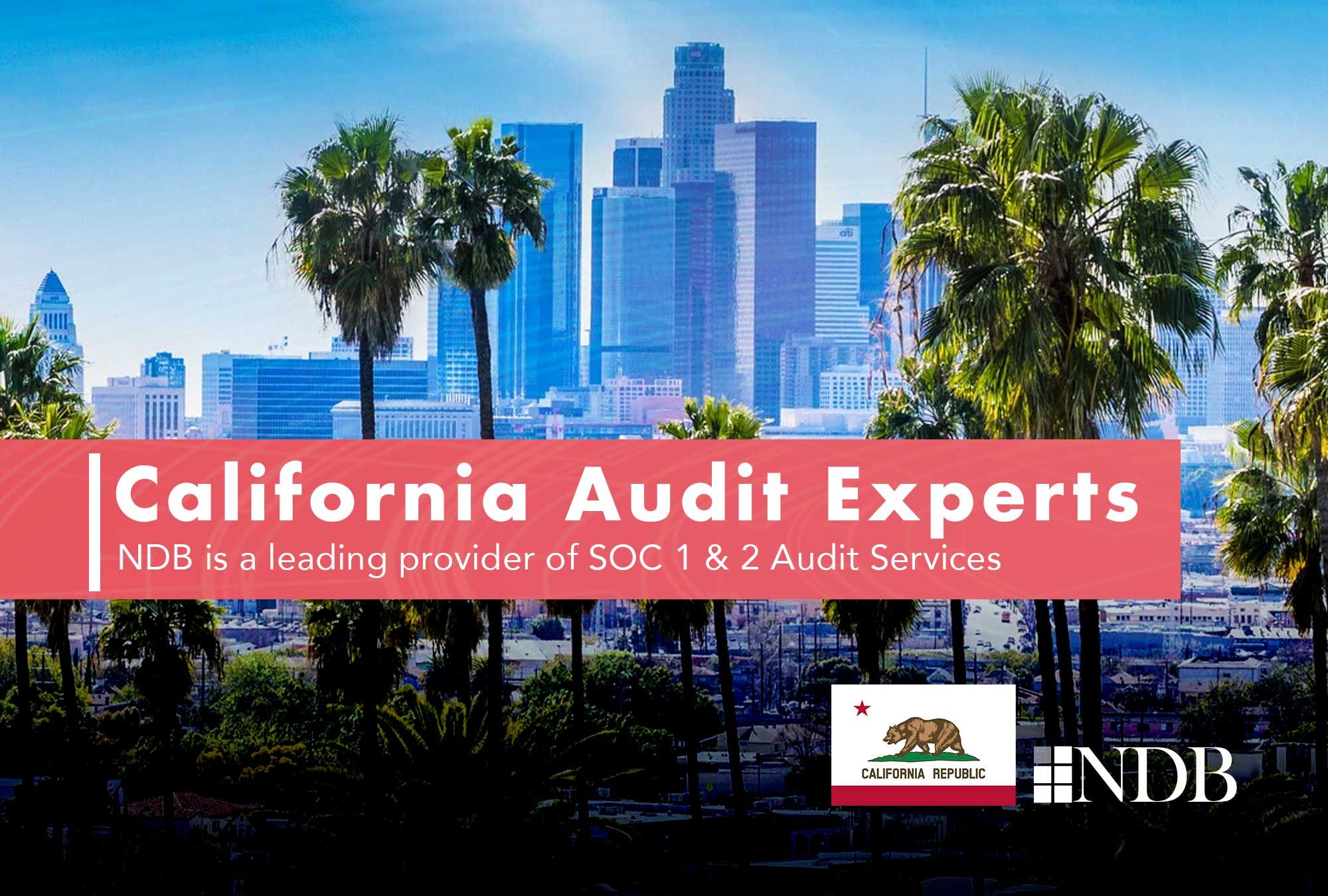Now, more than ever, data security, privacy, and operational efficiency are top priorities for businesses—especially those operating in high-tech, SaaS, and service-based industries. Whether you’re a startup, small business, or established enterprise, ensuring that your company adheres to the highest standards of security, confidentiality, and operational integrity is crucial for success.
For Southern California businesses, particularly those handling sensitive customer or partner data, undergoing a SOC 2 audit is an excellent way to validate your security posture and build trust with clients. As one of the leading providers of SOC 2 Type 1 and Type 2 audits in Southern California, NDB is here to guide you through the process. In this blog post, we’ll explore the importance of SOC 2 Type 1 and Type 2 audits and how NDB helps Southern California businesses navigate these audits successfully.
What is SOC 2 and why is it Important?
SOC 2, or System and Organization Controls 2, is a framework for managing and securing sensitive data, created by the American Institute of Certified Public Accountants (AICPA). It applies to organizations that handle client information and are particularly relevant for businesses in the technology, cloud services, and SaaS industries.
SOC 2 audits assess how well a company complies with five key trust service criteria:
- Security: Ensures that the system is protected against unauthorized access and vulnerabilities.
- Availability: Evaluates if the system is available for operation and use as agreed or required.
- Processing Integrity: Ensures that system processing is complete, accurate, timely, and authorized.
- Confidentiality: Ensures that sensitive data is protected and access is appropriately restricted.
- Privacy: Focuses on the collection, use, retention, and disposal of personal data in line with privacy laws and regulations.
SOC 2 compliance is an important benchmark for businesses, particularly those dealing with sensitive customer data. For startups and small businesses in Southern California, earning a SOC 2 certification can boost credibility and establish a competitive edge, as it proves your commitment to high standards of security and operational excellence.
SOC 2 Type 1 vs. SOC 2 Type 2 Audits:
What’s the Difference?
When it comes to SOC 2 audits, businesses can pursue either Type 1 or Type 2 certification. Although both types of audits are valuable, they differ in scope, timing, and focus.
SOC 2 Type 1 Audit
A SOC 2 Type 1 audit assesses the design of your controls at a specific point in time. It focuses on whether the controls you have in place meet the criteria set forth by the AICPA, such as how you plan to secure data, maintain privacy, and ensure system availability. Essentially, a Type 1 audit checks if your controls are appropriately designed and in place, but it does not assess their effectiveness over time.
- Focus: System design and implementation at a point in time.
- When to consider: SOC 2 Type 1 audits are often ideal for companies that are just beginning their SOC 2 journey. It provides initial validation that your company has the appropriate security policies and controls in place.
- Benefit: Type 1 audits offer immediate reassurance to clients and prospects that your security framework is thoughtfully designed, but they don’t offer a long-term view of how well those controls are working over time.
SOC 2 Type 2 Audit
A SOC 2 Type 2 audit takes a deeper dive into the effectiveness of your controls over a defined period, typically six months to a year. This audit not only evaluates whether your controls are in place but also whether they have been operating effectively and consistently over the audit period.
- Focus: Design and effectiveness of controls over time.
- When to consider: SOC 2 Type 2 audits are recommended once your business has had a chance to implement and refine its security controls. It’s the ideal certification for businesses that want to demonstrate consistent and ongoing commitment to maintaining high standards of security, availability, confidentiality, and privacy.
- Benefit: Type 2 audits provide clients, partners, and investors with greater assurance that your controls are consistently effective over time. This type of audit is often required by enterprise clients and larger organizations to ensure that your business is consistently meeting their security expectations.
Why Southern California Businesses Need SOC 2 Type 1 and Type 2 Audits
Southern California is home to a wide range of industries, from tech startups and fintech to e-commerce and healthcare. In a region where competition is fierce and customer trust is hard-won, undergoing a SOC 2 audit can set your business apart in meaningful ways. Here are several reasons why SOC 2 Type 1 and Type 2 audits are essential for businesses in Southern California:
1. Enhancing Customer Trust and Confidence
With data breaches and cyber threats making headlines, customers are increasingly concerned about the security of their sensitive information. Achieving SOC 2 Type 1 and Type 2 certification demonstrates that your business has implemented rigorous security controls to protect customer data. For businesses in highly competitive industries such as SaaS and fintech, proving that you are SOC 2 compliant can be a key differentiator and help you earn the trust of customers, partners, and investors.
2. Attracting and Retaining Enterprise Clients
Many larger organizations and enterprise clients require vendors to demonstrate that they meet industry standards for data security and privacy. By completing a SOC 2 Type 2 audit, you show potential enterprise clients that your security protocols have been consistently effective, which can open doors to larger contracts and high-value partnerships. This is particularly true for cloud services providers, data processors, and any business that stores or processes sensitive information.
3. Reducing Security Risks and Vulnerabilities
A SOC 2 audit forces your organization to evaluate its internal controls and identify any vulnerabilities that could jeopardize data security. Through the audit process, businesses can uncover weaknesses in their systems, processes, or technologies that they may not have previously noticed. This proactive approach helps mitigate risks and ensures that your company’s security posture is strong and resilient to cyberattacks.
4. Compliance with Industry Regulations
Many industries, such as healthcare (HIPAA), financial services (GLBA), and e-commerce (PCI-DSS), require companies to comply with specific security and privacy regulations. SOC 2 certification is an important step toward regulatory compliance, as it helps ensure that your business is aligned with industry best practices and meets legal requirements regarding data protection. For businesses looking to expand internationally or into regulated sectors, SOC 2 Type 2 audits can help streamline compliance efforts and avoid penalties.
5. Continuous Improvement
SOC 2 Type 2 audits not only evaluate the effectiveness of your security measures but also encourage ongoing improvement. During the audit process, you will receive actionable insights into areas where your controls can be enhanced or where additional measures may be necessary. With SOC 2 Type 2, the continuous monitoring and periodic audits ensure that your business’s security practices evolve with new risks and challenges.
How NDB Helps Southern California Businesses with SOC 2 Type 1 and Type 2 Audits
At NDB, we specialize in helping Southern California businesses with SOC 2 Type 1 and Type 2 audits. We understand the unique needs of startups, small businesses, and growing enterprises in the region, and we’re committed to simplifying the audit process while ensuring that your organization meets the highest standards of security and operational integrity.
1. Initial Consultation and Gap Analysis
The first step in the SOC 2 audit process is understanding where your business stands. We begin with a gap analysis, where we assess your current security controls and practices against the requirements of the SOC 2 framework. This helps us identify areas of improvement and create a roadmap for your business to follow in order to meet the SOC 2 criteria.
2. Tailored Roadmap for SOC 2 Compliance
Once the gap analysis is complete, we’ll work with your team to develop a tailored roadmap for achieving SOC 2 Type 1 or Type 2 certification. Whether you’re just starting with a SOC 2 Type 1 audit or looking to move forward with a SOC 2 Type 2 audit, we’ll ensure that your business has all the tools, policies, and controls in place to meet and exceed audit requirements.
3. Implementation Support
Achieving SOC 2 certification requires the implementation of robust security controls across your organization. NDB provides expert guidance to help you implement the necessary controls for security, confidentiality, processing integrity, availability, and privacy. Our team assists in creating documentation, defining policies, and setting up the processes that will help you achieve your audit goals.
4. Audit Preparation and Ongoing Support
As your audit date approaches, we’ll ensure that your business is fully prepared for the certification process. We assist with documentation, provide audit-ready reports, and guide your team through the entire audit process to ensure a smooth and efficient review. Once the audit is complete, we provide post-audit support, including remediation and continuous improvement assistance to keep your business compliant





